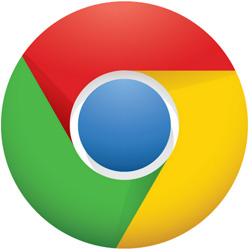 It has recently come to light that Google’s Chrome web browser (which I LOVE by the way) is a battery hog when used on a laptop, and this is something that I had preciously been totally unaware of.
It has recently come to light that Google’s Chrome web browser (which I LOVE by the way) is a battery hog when used on a laptop, and this is something that I had preciously been totally unaware of.
I hadn’t noticed it because I do the vast majority of my work on a desktop PC, but after checking it out by running tests with my laptop, I can tell you that it is indeed true.
Apparently the culprit is something called the “System Clock Tick Rate”. In simplified terms, this is the rate at which the system “wakes up” a sleeping CPU to check to see if anything is going on that needs to be taken care of.
In a nutshell, Chrome wakes up the CPU 1,000 times per second. In contrast, Internet Explorer and Firefox wake up the CPU just 16 times per second. That’s a huge difference, and it translates into a huge difference in battery drain as well.
Bottom line: If you use Chrome and your laptop’s battery always seems to die sooner than you think it should, switching to either I.E. or Firefox can add quite a few extra minutes to your laptop’s battery life.
P.S. Google surely knows about this issue by now and they’re probably working on a fix as I write this, but who knows?